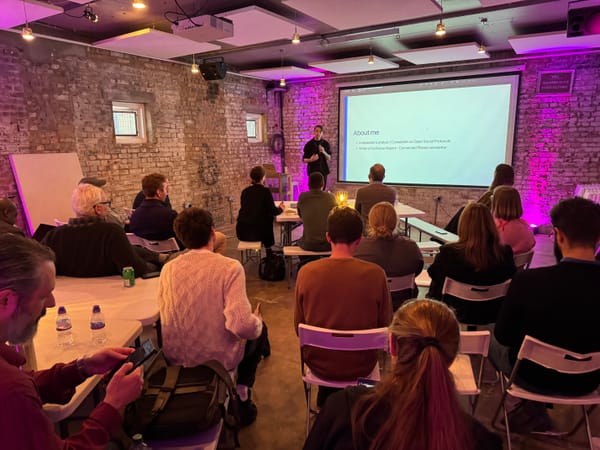Censorship and Silos
This is a summarized version of my talk at Hacks and Hackers tonight at Matter in San Francisco.
This last summer, Alberto Guzman, a hairdresser in New York, uploaded a picture of him and his husband sharing a kiss on their wedding day. He tagged it with the hashtag #happy, as well as #gaypride and #equalrights. It was a wonderful day for them both.
And then Instagram removed it - for being inappropriate.
It turned out that it had been flagged as inappropriate, which is very easy to do on Instagram. You just click flag, and then tell them why. There isn’t a lengthy procedure to go through, and the moderators typically remove items very quickly.
This happens all the time. Famously, it isn’t safe to upload photos containing breastfeeding to Facebook, because they’re flagged as pornography. The company changed its policy a few years ago, but as recently as last year, mothers were demonstrating outside of Facebook’s headquarters because their photos were still being removed.
Late last year, drag queens had their profiles frozen and removed from Facebook because they weren’t using their “real names”.
In each and every case, these deletions were caused by organized groups of users who wanted the content gone because they didn’t like it.
It’s not just photos of motherhood and same-sex marriages that are being removed.
As the British blogger Elliot Higgins noted last year, Facebook pages about the sarin gas attacks in Syria have also almost all been removed. History is being rewritten.
In fact, the problem is so bad that when Mark Zuckerberg posted in favor of free speech following the awful events in Paris last week, a legitimate question about freedom of expression in the comments was flagged and removed.
These aren’t government requests. All of these were due to ordinary people: civilians making a decision about what people should be allowed to publish and how they should define their identities.
I'm picking on Facebook because they're big. 835 million people access Facebook alone every day. It’s how they get their news, how they talk to their friends, how they learn about the world. Smartphone users check Facebook 14 times a day on average.
We’re all familiar with Edward Snowden, and his revelations about illegal NSA surveillance. But the truth is that we’re all spying on each other, too. The content standards that Facebook sets, and its policies regarding inappropriate content, have a real impact on how people learn about the world.
And it’s a real impact. The PEN American Center found that the number of writers in democracies who report that they self-censor the topics they write about is approaching the number of writers in non-democracies who self-censor. Which is to say that one third of writers in so-called “free” countries self-censor because of surveillance.
I would argue that we have the cloud to thank for this. This famous slide from our friends at the NSA describes the best place to intercept data being stored in Google’s cloud. “The cloud” sounds fluffy and nice, but it actually means that you’re storing your stuff on someone else’s hard drive. If you store your data on Google’s cloud, you’re storing it on Google’s hard drive. If you store your data on Facebook’s cloud, you’re storing it on Facebook’s hard drive. Their hard drives, their rules.
And as we’ve seen, it’s easy for someone to get your content removed if they don’t like it, whether they’re the government or just a person who disagrees with you. In a world where reach is everything, no wonder writers self-censor.
And yet, the Internet is amazing. It’s the most powerful engine for communications and learning the world has ever known. It’s an important driver for free speech and it’s changed the way we do business. And we shouldn’t have to give up any of those things.
The early Internet was designed to be resilient: the opposite of the giant siloed stacks we now pour all of our content and conversations into. The idea was to connect up universities and military labs to share resources, in a decentralized way.
That decentralized structure allows us to use services like Google, Twitter and Facebook through a single browser window, but what if we rethought how we shared data online? What if each of us had our own service? What if our conversations and ideas lived on our own devices, in our own living rooms and in our newsrooms? And what if these devices were as easy to use as an iPhone?
We’re beginning to see this future emerge. The Intel Compute Stick is a tiny computer that costs just $89, while platforms like Sandstorm turn publishing and talking to people online from your own server into a one-click operation. Sandstorm, by the way, just announced $1.3 million in funding.
In the old days, Microsoft disrupted the tyranny of mainframes and timesharing by imagining a world with a computer on every desk. Today, I believe we should be imagining a world where we all own our content and conversations online.


